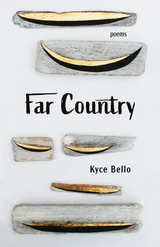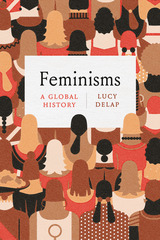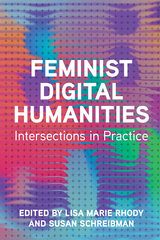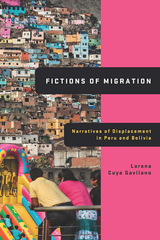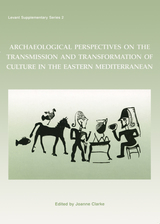
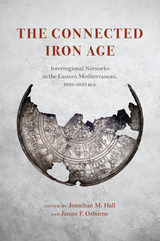
The early first millennium BCE marks one of the most culturally diverse periods in the history of the eastern Mediterranean. Surveying the region from Greece to Iraq, one finds a host of cultures and political formations, all distinct, yet all visibly connected in meaningful ways. These include the early polities of Geometric period Greece, the Phrygian kingdom of central Anatolia, the Syro-Anatolian city-states, the seafaring Phoenicians and the biblical Israelites of the southern Levant, Egypt’s Twenty-first through Twenty-fifth Dynasties, the Urartian kingdom of the eastern Anatolian highlands, and the expansionary Neo-Assyrian Empire of northern Mesopotamia. This volume adopts an interdisciplinary approach to understanding the social and political significance of how interregional networks operated within and between Mediterranean cultures during that era.
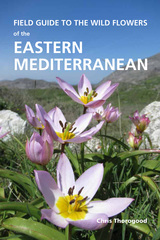
The geographic coverage of this book spans the Ionian Archipelago, mainland Greece, Peloponnese, Aegean Islands, Crete, Cyprus, Mediterranean Turkey, and the coasts of Israel, Palestine, Lebanon, and Syria. Featuring more than three thousand plants, this easy-to-use guide focuses on the most common and conspicuous species that occur in the area, with plant descriptions, color photographs, and illustrations throughout. A section on where to see wild flowers in the region is included, as well as a glossary of terms. An ideal companion for wildlife and plant enthusiasts, this guide will enable anyone to reliably identify wild flowers in the field.

For thousands of years, the region of Palestine and the East Mediterranean has been denied an indigenous voice for an inclusive history. Three religions ascribe their origins to this part of the world, appropriating and re-appropriating the "Holy Land" time and again.
Hidden Histories offers a powerful corrective to common understandings. It emphasizes Palestine's long history and dispels many old and new myths – covering issues of religious origins and sacred sites, identity and self-colonization, and the retrieval of ancient heritage.
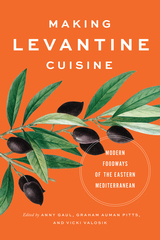
Melding the rural and the urban with the local, regional, and global, Levantine cuisine is a mélange of ingredients, recipes, and modes of consumption rooted in the Eastern Mediterranean. Making Levantine Cuisine provides much-needed scholarly attention to the region’s culinary cultures while teasing apart the tangled histories and knotted migrations of food. Akin to the region itself, the culinary repertoires that constitute Levantine cuisine endure and transform—are unified but not uniform. This book delves into the production and circulation of sugar, olive oil, and pistachios; examines the social origins of kibbe, Adana kebab, shakshuka, falafel, and shawarma; and offers a sprinkling of family recipes along the way. The histories of these ingredients and dishes, now so emblematic of the Levant, reveal the processes that codified them as national foods, the faulty binaries of Arab or Jewish and traditional or modern, and the global nature of foodways. Making Levantine Cuisine draws from personal archives and public memory to illustrate the diverse past and persistent cultural unity of a politically divided region.
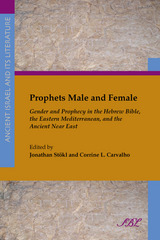
READERS
Browse our collection.
PUBLISHERS
See BiblioVault's publisher services.
STUDENT SERVICES
Files for college accessibility offices.
UChicago Accessibility Resources
home | accessibility | search | about | contact us
BiblioVault ® 2001 - 2025
The University of Chicago Press


